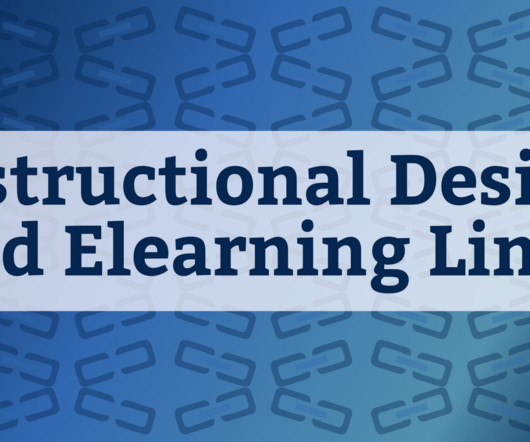2025’s Top Instructional Design Models You Simply Can’t Ignore
Hurix Digital
MAY 23, 2025
Specialized Expertise Instructional designers possess specialized knowledge and expertise in instructional design principles, adult learning theories, and best practices. Blooms Taxonomy Blooms Taxonomy is a hierarchical model that categorizes educational objectives into cognitive domains.





















































Let's personalize your content